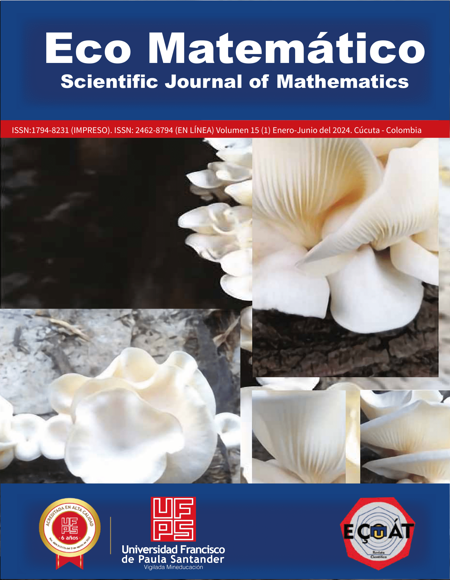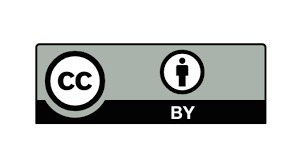Bibliometric impact of the scientific productivity of teachers in the speech therapy programs of Santander and Norte de Santander, Colombia
Impacto bibliométrico de la productividad científica de los docentes de los programas de fonoaudiología de Santander y Norte de Santander, Colombia
Main Article Content
The Pan American Health Organization (PAHO) highlights that research is essential to solve the different problems that may arise from public health. And Speech Therapy seeks to provide significant contributions from the various areas that this professional performs. Descriptive bibliometric study of the impact of the scientific production of the teachers of the speech therapy programs of three Universities in the departments of Santander and Norte de Santander. The scientific production and its impact on Publish or Perish and Scopus were investigated, with which a descriptive analysis was carried out considering the measures of central tendency and dispersion through SPSS software version 25.0. There is a greater production of articles at the University of Pamplona with a total of 81, of which they have been cited 316 times, while the University of Santander has 16 published articles and 89 citations, obtaining an average of 5.56, being lower. production, but with greater impact. The creation of new knowledge through research and innovation forms a productive social, scientific and technological infrastructure of Universities, contributing to human, social and economic development. The impact of research is essential to measure, because Universities are and must be permanent and continuous producers of intellectual property, knowledge and resources. From the population under study belonging to the Universities of Santander and Norte de Santander; The University of Pamplona is the one that has the greatest impact on scientific production.
Downloads
Publication Facts
Reviewer profiles N/A
Author statements
Indexed in
- Academic society
- Universidad Francisco de Paula Santander
- Publisher
- Universidad Francisco de Paula Santander
Article Details
Adams, D. (2023). Citation metrics. Information about the citation metrics calculated by Publish or Perish. Proceedings of the National Academy of Sciences of the United States of America. https://harzing.com/resources/publish-or-perish/manual/using/query-results/metrics?source=pop_8.9.4538.8589
Agüero-Ynca, R. L. (2019). Producción científica: estudio de caso de las buenas prácticas docentes en una universidad pública [Universidad César Vallejo]. In Universidad César Vallejo. https://repositorio.ucv.edu.pe/handle/20.500.12692/33791%0Ahttps://repositorio.ucv.edu.pe/bitstream/20.500.12692/33791/1/Agüero_YRL.pdf%0Ahttps://repositorio.ucv.edu.pe/handle/20.500.12692/33791
Bardales-Delgado, J. M. (2021). La investigación científica: su importancia en la formación de investigadores. Ciencia Latina Revista Científica Multidisciplinar, 5(3), 2385–2386. https://doi.org/10.37811/cl_rcm.v5i3.476 DOI: https://doi.org/10.37811/cl_rcm.v5i3.476
Biblioteca, U. de M. (2023). Herramientas y recursos para localizar indicios de calidad. https://biblioguias.uma.es/HerramientasIndiciosCalidad
Carvajal-Tapia, A. E., & Carvajal-Rodríguez, E. (2019). La importancia del rol docente en la enseñanza e investigación. Revista de Investigación Psicologia, 20, 107–113. http://www.scielo.org.bo/scielo.php?script=sci_arttext&pid=S2223-30322019000100008#:~:text=El docente es un actor,profesionales altamente idóneos y competitivos
Cobo-Sánchez, J. L., Ochando-García, A., Blanco-Mavillard, I., Cirera-Segura, F., Crespo-Montero, R., & Casas-Cuestas, R. (2018). Análisis del impacto de la producción científica de la revista Enfermería Nefrológica entre 1998 y 2017. Enfermería Nefrológica, 21(4), 349–358. https://doi.org/10.4321/s2254-28842018000400004 DOI: https://doi.org/10.4321/S2254-28842018000400004
Díaz-Corrales, A. V., & Pedroza-Pacheco, M. E. (2018). Indicadores de impacto en la investigación científica. Revista Científica de FAREM-Estelí. í. Medio Ambiente, Tecnología y Desarrollo Humano, 7(25), 60–66. https://doi.org/http://dx.doi.org/10.5377/farem.v0i25.5683 DOI: https://doi.org/10.5377/farem.v0i25.5683
Duarte de Krummel, M. (2015). Importance of scientific research in university life. Revista Científica de La UCSA, 2(2), 3–5. https://doi.org/10.18004/ucsa/2409-8752/2015.002(02)003-005 DOI: https://doi.org/10.18004/ucsa/2409-8752/2015.002(02)003-005
Elsevier. (2020). Elsevier cookie notice. Elsevier Cookie Notice. https://beta.elsevier.com/legal/cookienotice?trial=true
Ganga-Contreras, F., Paredes-Buzeta, L., & Pedraja-Rejas, L. (2015). Importancia de las publicaciones académicas: algunos problemas y recomendaciones a tener en cuenta. Idesia (Arica), 33(4), 111–119. https://doi.org/http://dx.doi.org/10.4067/S0718-34292015000400014 DOI: https://doi.org/10.4067/S0718-34292015000400014
García, Y. G. (2012). El estado de la investigación en Colombia: 1 Estadísticas sobre investigación en la educación superior en Colombia. Educación y Desarrollo Social, 6(1), 134–144. https://doi.org/https://doi.org/10.18359/reds.823
Gómez, R. (2021). La producción científica de las IES colombianas en Scopus (2006–2015). Bibliotecas, 39(1), 1–28. https://doi.org/http://dx.doi.org/10.15359/rb.39-1.2 DOI: https://doi.org/10.15359/rb.39-1.2
González, N., Zerpa, M. L., Gutierrez, D., & Pirela, C. (2007). La investigación educativa en el hacer docente. Laurus, 13(23), 279–309. https://www.redalyc.org/pdf/761/76102315.pdf
Gudiño-Palma, A. N., Quindemil-Torrijo, E. M., Chaparro-Martínez, E. I., Muentes-Vera, N. A., & Rumbaut-León, F. (2023). Los identificadores persistentes (orcid y scopus author ID) en las revistas de acceso abierto en Ecuador. Revista Bibliotecas. Anales de Investigación, 19(3), 11. https://dialnet.unirioja.es/servlet/articulo?codigo=9079401
Hanney, S.-R., Gonzalez-Block, M. A., Buxton, M. J., & Kogan, M. (2003). The utilisation of health research in policy-making: Concepts, examples and method of assessment. Health Research Policy and Systems, 1, 1–28. https://doi.org/10.1186/1478-4505-1-2 DOI: https://doi.org/10.1186/1478-4505-1-2
Hernández-Jaramillo, J., Cruz-Velandia, I., & Torres-Narváez, M. (2010). Investigación clínica en fonoaudiología: análisis de la literatura científica 2005-2009. Revista de La Facultad de Medicina, 58, 204–213. http://www.scielo.org.co/scielo.php?script=sci_abstract&pid=S0120-00112010000300005&lng=e&nrm=iso&tlng=es
Jardines-Macias, J. E., & Martínez-Fernández, M. R. (2021). Archaeological investigations of " Los Buchillones ". Ciencias Holguín, 27(3), 17–37. https://www.redalyc.org/journal/1815/181568184003/html/
Lizarazo-Camacho, A. M., & Ortega, D. F. (2013). Tendencias De Investigación Fonoaudiológica: Encuentros Nacionales De Investigación En Fonoaudiología. Revista Areté, 13(1), 138–151. http://ibero-revistas.metabiblioteca.org/index.php/arete/article/view/89
Marín-Colorado, P. A. (2020). El libro en Colombia: Entre la sostenida concentración y la lenta marcha hacia la independencia (2000-2019). Revista Amoxtli, 5, 39–58. https://doi.org/https://doi.org/10.5281/zenodo.4377459
Martin-Álvarez, W. D., Zambrano-Medina, N. A., Llanos-Redondo, A., Rangel-Navia, H., & Salazar-Torres, J. P. (2023). Análisis Del Impacto De Los Productos Resultados De Las Actividades Del Grupo De Investigación Comunicación Humana. Revista Perspectivas UFPS, 8, 374–385. https://doi.org/https://doi.org/10.22463/25909215.4154 DOI: https://doi.org/10.22463/25909215.4154
Maz-Machado, A., Villarraga-Rico, E., & Jiménez-Fanjul, N. N. (2016). La producción científica colombiana en SciELO: un análisis bibliométrico. Revista Interamericana de Bibliotecología, 39(2), 111–119. https://doi.org/https://doi.org/10.17533/udea.rib.v39n2a03 Resumen: DOI: https://doi.org/10.17533/udea.rib.v39n2a03
MinCiencias. (2021). Funciones y deberes | Minciencias. MinCiencias, 9–11. https://minciencias.gov.co/ministerio/funciones
Ministerio de Ciencia Tecnología e Innovación, (Minciencias). (2022). Colombia se consolida como el segundo país en América Latina con mayor número de revistas indexadas. https://minciencias.gov.co/sala_de_prensa/colombia-se-consolida-como-el-segundo-pais-en-america-latina-con-mayor-numero
Ministerio de Ciencia Tecnología e Innovación, M. (2016). Procedimiento indexación de revistas científicas colombias especializadas-publindex. https://minciencias.gov.co/sites/default/files/ckeditor_files/indexacioon-de-revistas- especializadas-v05.pdf
Molina de Salazar, D. I., & Giraldo, G. C. (2013). Impacto de la investigación clínica en el desarrollo de un país. Acta Médica Colombiana, 37(4), 215–219. https://doi.org/10.36104/amc.2012.182 DOI: https://doi.org/10.36104/amc.2012.182
Montes-Rotela, M., Quessep-Tapias, I. P., Redondo-Martínez, L. M., & Lastre-Meza, K. S. (2015). Tendencias de la investigación en Fonoaudiología: el caso de la Universidad de Sucre. Revista Col.Reh, 14, 98–108. https://doi.org/https://doi.org/10.30788/RevColReh.v14.n1.2015.24 DOI: https://doi.org/10.30788/RevColReh.v14.n1.2015.24
Moya-Anegón, F., & Group, F. of Sci. R. (2021). Producción e impacto científico en el mundo. https://doi.org/https://orcid.org/0000-0002-0255-8628
Muñoz-Martínez, M., & Garay-Garay, F. (2015). La investigación como forma de desarrollo profesional docente: Retos y perspectivas. Estudios Pedagógicos (Valdivia), 41(2), 389–399. https://doi.org/10.4067/s0718-07052015000200023 DOI: https://doi.org/10.4067/S0718-07052015000200023
Neira-Torres, L. I., Rodríguez-Hernández, Y., Lizarazo-Camacho, A. M., & Rodríguez-Riaño, L. J. (2022). Panorama de la investigación en fonoaudiología: tendencias en Colombia. Revista Chilena de Fonoaudiologia, 21, 1–10. https://doi.org/10.5354/0719-4692.2022.66016 DOI: https://doi.org/10.5354/0719-4692.2022.66016
Nuñez, R. M., & Aristizábal-Botero, C. (2019). La «realización científica» en la sociología de Colombia: una aproximación al estado de la disciplina. Debates En Sociología, 48, 103–129. https://doi.org/https://doi.org/10.18800/debatesensociologia.201901.004 DOI: https://doi.org/10.18800/debatesensociologia.201901.004
Organización Panamericana de la Salud, (OPS)., & Organización Mundial de la Salud, (OMS). (2017). Investigaciones. Organización Panamericana de La Salud, (OPS) Organización Mundial de La Salud, (OMS). https://www.paho.org/es/temas/investigaciones
Pava-Ripoll, N. A., Payán-Villamizar, C. M., & Reyes- Torres, A. (2011). Aportes desde la investigación formativa a la producción en Fonoaudiología : el caso de una universidad colombiana. Revista Da Sociedade Brasileira de Fonoaudiologia, 16(4), 377–383. https://doi.org/https://doi.org/10.1590/S1516-80342011000400003 DOI: https://doi.org/10.1590/S1516-80342011000400003
Rosselli, D. (2019). Yo te cito tú me citas: la importancia de las referencias. Acta Neurológica Colombiana, 35(1), 1–3. https://doi.org/10.22379/24224022225 DOI: https://doi.org/10.22379/24224022225
Santa, S., & Herrero-Solana, V. (2010). Producción científica de América Latina y el Caribe: Una aproximación a través de los datos de Scopus (1996 - 2007). Revista Interamericana de Bibliotecologia, 33(2), 379–400. http://www.scielo.org.co/scielo.php?pid=S0120-09762010000200005&script=sci_arttext
Segura-Otálora, M. C., Molina-Béjar, R., Matus-Corredor, N., Dottor-Dotor, L., Neira-Torres, L., Mambrú, M. P., Jiménez-H, D. P., Castaño, S. I., Rubio-González, Y., & Castellano-Robayo, J. (2014). Perfil y competencias profesionales del fonoaudiólogo en Colombia. In Ministerio de Salud y Protección Social. http://www.minsalud.gov.co/sites/rid/Lists/BibliotecaDigital/RIDE/VS/TH/Optometr?a_Octubre2014.pdf%0Ahttps://revistas.iberoamericana.edu.co/index.php/arete/article/view/91%0Ahttps://dialnet.unirioja.es/servlet/articulo?codigo=1067946%0Ahttp://www.scielo.o
Sistema Nacional de Información de la Educación Superior, (SNIES)., & The SCImago Journal & Country Rank, (SJR). (2015). Colombia es el quinto país con mayor producción científica en América Latina. https://www.mineducacion.gov.co/sistemasdeinformacion/1735/w3-article-245356.html?_noredirect=1
Valbuena Serna, D. (2023). Aspectos Relevantes para Tener en Cuenta a la Hora de Publicar un artículo Científico o Académico en Revistas Investigativas. Repositorio de La Universidad Libre. https://hdl.handle.net/10901/27063
Villa-Díaz, M. (2002). Flexibilidad y educación superior. In S. General (Ed.), Instituto colombiano para el fomento de la educación superior ICFES (Primera Ed). https://acreditacion.unillanos.edu.co/CapDocentes/contenidos/dis_ambientes_metodos_pedagogicos/Memoria3/flexibilidad_educacion_colombia.PDF








